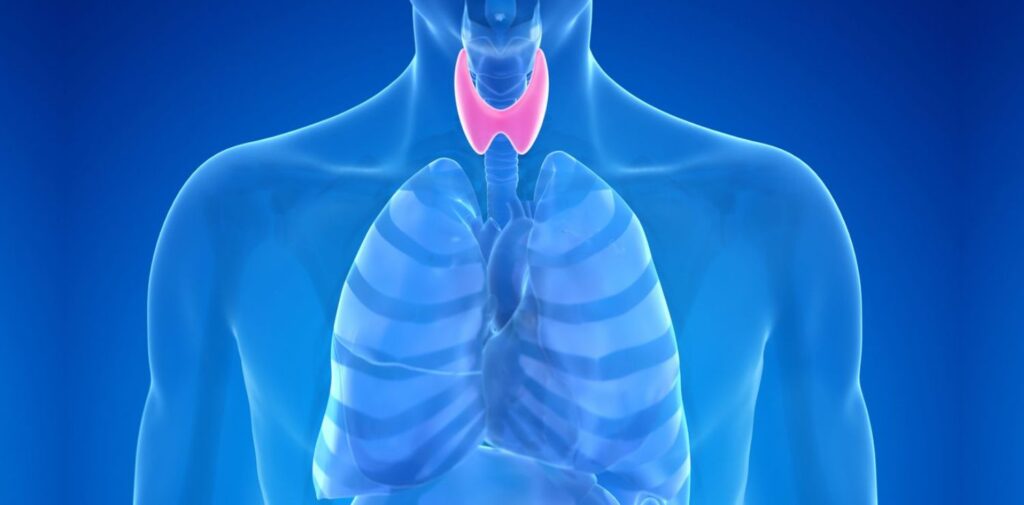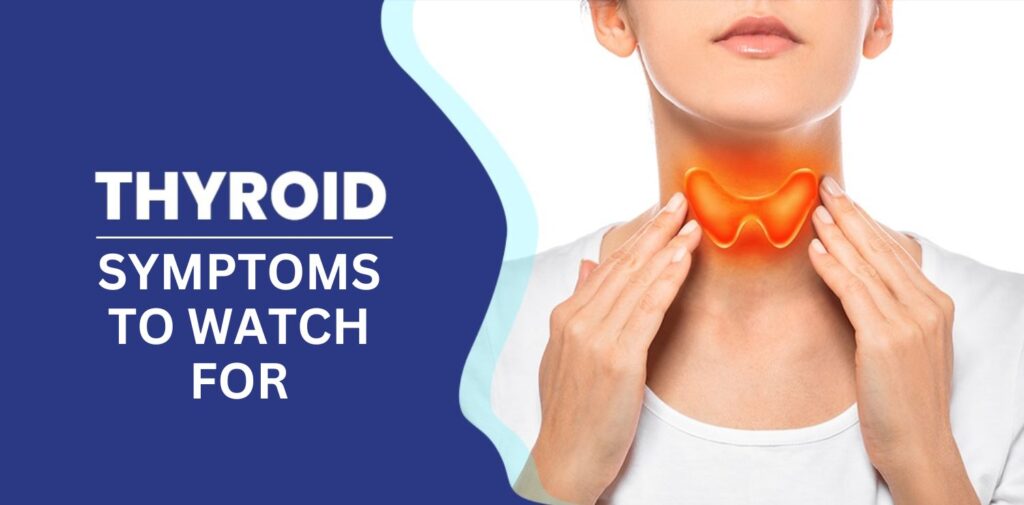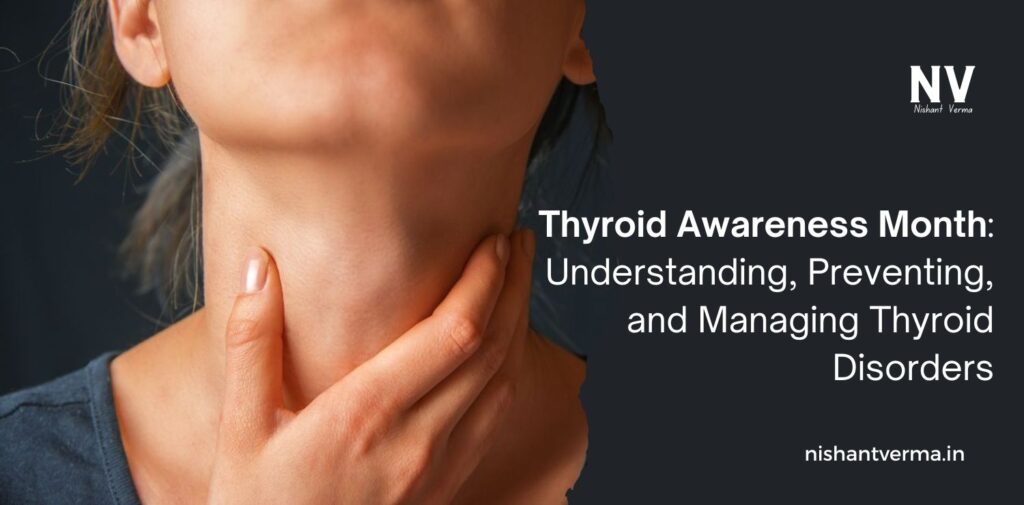January is observed as Thyroid Awareness Month, an important time to educate people about the thyroid gland, its function, and the disorders that can affect it. In India, thyroid disorders are quite common, yet many people remain unaware of the symptoms and risks associated with thyroid problems. According to studies, thyroid issues are affecting a large number of people in India, particularly women. As part of Thyroid Awareness Month, it is crucial to spread awareness about thyroid health, help people recognize the signs of thyroid dysfunction, and encourage early diagnosis and treatment.
What is the Thyroid Gland?
The thyroid is a small, butterfly-shaped gland located at the base of your neck, just below the Adam’s apple. It plays a critical role in your overall health by producing hormones that regulate metabolism, energy levels, and many other bodily functions. These hormones—thyroxine (T4) and triiodothyronine (T3)—help control the speed at which your cells and organs function.
- Metabolism: Your thyroid hormones control how quickly your body uses energy. A healthy thyroid helps maintain a balanced metabolism, ensuring that energy is used efficiently.
- Growth and Development: Thyroid hormones are essential for growth, especially in children. They also affect brain development and help regulate the body’s temperature.
- Heart Function: The thyroid plays a role in regulating heart rate and blood pressure. It influences how your heart pumps blood throughout the body.
When the thyroid gland works properly, it helps keep the body functioning smoothly. However, when the thyroid becomes overactive (hyperthyroidism) or underactive (hypothyroidism), it can lead to a variety of health problems.

Common Thyroid Disorders in India
Several thyroid disorders can affect people in India. Let’s take a look at the most common ones:
Hypothyroidism (Underactive Thyroid): In hypothyroidism, the thyroid gland does not produce enough thyroid hormones. This leads to a slowdown in the body’s metabolism and can cause symptoms like:
- Fatigue and weakness
- Weight gain
- Dry skin and hair
- Sensitivity to cold
- Constipation
- Depression and mood swings
- Slowed heart rate
- Puffy face
Hypothyroidism is one of the most common thyroid disorders in India, especially among women. It can develop slowly, and many people may not notice symptoms right away. If left untreated, it can lead to serious health issues such as heart disease, infertility, and joint pain.
Hyperthyroidism (Overactive Thyroid): In hyperthyroidism, the thyroid gland produces too much of the thyroid hormones, speeding up the body’s metabolism. This can cause symptoms like:
- Weight loss despite an increased appetite
- Rapid heart rate (tachycardia)
- Sweating and feeling hot
- Nervousness or irritability
- Tremors (shaking hands)
- Increased frequency of bowel movements or diarrhea
- Fatigue or muscle weakness
Hyperthyroidism is less common than hypothyroidism but still affects many people, particularly those with autoimmune conditions like Graves’ disease. If left untreated, it can cause serious complications, including heart problems, osteoporosis, and muscle weakness.
Goiter: A goiter is an abnormal enlargement of the thyroid gland. It can happen when the thyroid gland tries to compensate for hormone imbalances, either due to hypothyroidism or hyperthyroidism. A goiter can cause swelling at the base of the neck, difficulty swallowing, or difficulty breathing. In India, iodine deficiency is a significant cause of goiters, especially in rural areas where people may not have access to iodized salt.
Thyroid Nodules: Thyroid nodules are lumps that form in the thyroid gland. Most of these nodules are benign (non-cancerous), but some can be cancerous. In many cases, thyroid nodules do not cause any noticeable symptoms, but they can be detected through routine check-ups or imaging tests.
Hashimoto’s Thyroiditis: Hashimoto’s thyroiditis is an autoimmune disorder where the body’s immune system attacks the thyroid gland, leading to hypothyroidism. It is the most common cause of hypothyroidism in the developed world and affects women more frequently than men. This condition can cause gradual thyroid dysfunction and requires lifelong treatment with thyroid hormone replacement.
Graves’ Disease: Graves’ disease is an autoimmune disorder that causes hyperthyroidism. It occurs when the immune system mistakenly stimulates the thyroid gland to produce excess hormones. Symptoms include weight loss, irritability, tremors, and an enlarged thyroid (goiter). In severe cases, Graves’ disease can cause complications in the eyes, known as Graves’ ophthalmopathy, which can lead to bulging eyes and vision problems.

Symptoms to Watch For
Recognizing the symptoms of thyroid disorders can be challenging because they often mimic other health issues. However, some common signs that may indicate a thyroid problem include:
- Unexplained weight changes (either gain or loss)
- Changes in skin, hair, and nails (dry skin, brittle nails, or hair loss)
- Constant fatigue, even after adequate rest
- Difficulty concentrating or memory problems (often called “brain fog”)
- Changes in heart rate (either fast or slow)
- Mood swings, depression, or anxiety
- Difficulty sleeping or feeling constantly restless
If you notice any of these symptoms, it’s essential to consult a healthcare professional for proper diagnosis and treatment.
How is Thyroid Disease Diagnosed?
To diagnose thyroid disorders, doctors typically perform a blood test to measure the levels of thyroid hormones (T3, T4) and thyroid-stimulating hormone (TSH). A high or low level of TSH can indicate whether the thyroid is overactive or underactive. In some cases, doctors may recommend an ultrasound, biopsy, or radioactive iodine scan to evaluate the thyroid gland and identify nodules or other abnormalities.

Treatment Options for Thyroid Disorders
Thyroid disorders are manageable, and most people can lead a healthy life with proper treatment. The treatment depends on the type of thyroid disorder and its severity:
- Hypothyroidism: Treatment usually involves thyroid hormone replacement therapy, where synthetic thyroid hormone (levothyroxine) is taken to make up for the low levels in the body. Regular monitoring is necessary to adjust the dosage and maintain hormone balance.
- Hyperthyroidism: Treatment options for hyperthyroidism include anti-thyroid medications (which block the thyroid from producing excess hormones), radioactive iodine therapy (which destroys overactive thyroid cells), or surgery (removal of part or all of the thyroid gland).
- Goiter and Thyroid Nodules: If a goiter is caused by an iodine deficiency, iodine supplementation or increased intake of iodized salt can help. Nodules may require monitoring, medications, or surgery if they become cancerous or cause discomfort.
- Autoimmune Conditions: For autoimmune-related thyroid disorders like Hashimoto’s thyroiditis and Graves’ disease, medications to manage hormone levels and control immune system activity are commonly used.
Prevention and Management
While some thyroid disorders are hereditary and cannot be prevented, there are ways to reduce the risk of developing thyroid problems:
- Ensure Adequate Iodine Intake: Iodine is essential for thyroid hormone production. Ensure that your diet includes iodized salt, seafood, dairy products, and other iodine-rich foods.
- Regular Health Check-ups: Routine blood tests and thyroid function screenings are essential, especially for people who have a family history of thyroid disease or other risk factors.
- Maintain a Healthy Lifestyle: A balanced diet, regular exercise, and stress management are key to maintaining overall health, including thyroid health.
Conclusion: Thyroid Awareness Month
Thyroid Awareness Month is a time to highlight the importance of understanding thyroid health and the impact of thyroid disorders on our well-being. In India, where thyroid problems are increasingly common, it is essential for people to recognize the signs, seek timely medical care, and adopt a healthy lifestyle to manage thyroid conditions.
By spreading awareness, encouraging early detection, and promoting healthier habits, we can improve thyroid health across the country. If you notice any symptoms of thyroid problems, don’t hesitate to consult a doctor for advice and treatment. With proper management, thyroid disorders can be controlled, allowing individuals to lead a healthy, active life.




